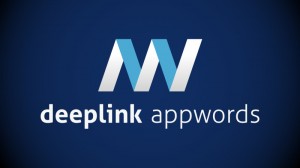 By Shelly Kramer, Published November 11, 2014
By Shelly Kramer, Published November 11, 2014
If you don’t have a customer relationship management (CRM) system for your small or midsize business, you’re likely wasting time, losing money and stifling your own growth. That may seem a little bold, but your business — whatever its size — needs a reliable way to manage information about your clients and prospects.
That’s something a lot of businesses, especially those with less than 10 staffers, are often overlooking as part of their business toolkit.
According to Salesforce, businesses that implement a CRM can not only increase sales by 29%, they’re more likely to improve sales productivity and forecast accuracy. That could make a big impact on your bottom line.
How can one system make such a difference? A good CRM:
- Ensures your whole team has access to the same client details — including any needed follow-up — so relationships don’t slip through the cracks.
- Improves customer service by managing tasks, making your team more efficient, and saving your clients the hassle of telling their story again and again. And again.
- Keeps even remote workers in the loop, giving you more options for flexible work and building your team.
- Helps you track leads and progress in real time, collating all the information in one spot so you can monitor results and trends.
Before I get into the benefits of a solid CRM, this infographic from Salesforce breaks down how a good system can help boost your sales and service.

Via: salesforce.com
Why You Need a CRM: Today!
Here are the benefits of a CRM and how they could help you dramatically improve not only your lead capture and conversion processes, but also help make your internal processes more efficient and effective.
Shared Information Encourages Shared Responsibility
Having a CRM system in place lets employees capture information and record it instantly. Anyone on your team can chart the progress of any given task and see how everything fits together in the bigger picture.
That said, a CRM is only as good as the information that goes into it, which means that everyone on your team needs to understand what’s needed from them.
As you implement a CRM, be sure you roll out a step-by-step process to ensure that everyone follows the same procedures. This gives each person on your team ownership over his or her own activities, whether they’re focused on lead capture, sales calls, customer feedback, or follow-up.
You Only Need to Ask Once
We all know how frustrating it is to feel like nobody is listening to you — and we’ve all spent ten torturous minutes explaining something to a customer service rep, only to be passed on to one of their colleagues so that you can explain the whole thing all over again.
By embracing a CRM, you can spare your customers this pain, and help ensure that information only has to be shared once. You can create a process to run clients through a sequence of questions: prompt them for contact info, specific needs or requests, mailing preferences, billing information, etc. Then, you can store that information for the future reference of anyone within the company. This will make your customers happy and your customer service team happier!
Make flexible work easier
Your business gets leads from a variety of sources, and chances are they don’t conveniently happen in the office — or even during business hours. There’s nothing more frustrating than following up on a lead only to find that you’ve been beaten to it by someone else.
The cloud is changing how we store and access information and a cloud-based CRM system gives you access to information anytime and anywhere. This can change not just the way you do business but also how you recruit staff.
Traditionally, you had to hire within driving distance of your office. But now, employees and contractors can access your business information from anywhere in the world. This lets you tap into the global talent pool — and if the right person for the job doesn’t live down the street, a CRM can help bridge the distance.
Follow Up on Leads
You can set up a CRM system so it highlights key milestones, processes and timelines, and the technology enables your team to upload new leads using their mobile devices.
With the right processes in place, leads are captured as they happen — on the go, with no data lost between stages. Even better? Any follow-up can start right away. With the tracking tools available in today’s CRM systems, your team can manage their own workloads more freely, and you can chart their status at the click of a button.
Measure Your Success
One of the great things about a CRM is that it can automatically collect data in one place, so it’s easier to collate information for performance reports. There’s nothing worse than frantically entering data into a spreadsheet by hand to meet a deadline or just to check some insights!
CRM systems put an end to all that and help companies track the success of their operations. It’s far too tempting to throw caution to the wind and take a gung-ho approach to measuring results. With a CRM system, the data speaks for itself and allows business owners to see which of their operations are working well and which need adjusting.
Not convinced? Base CRM shared these interesting stats:
- Investing in a CRM has an average return of $ 5.60 for every $ 1 you spend.
- When given access to a mobile CRM, sales reps saw a 15% increase in their productivity.
- Working on existing relationships matters: the probability of selling to someone who’s already a customer is 60-70 percent, while the odds of selling to someone new are 5-20 percent.
- Despite that last stat, 78 percent of companies have no process to re-engage or nurture customers after the sale has been made.
Can you see how a CRM system could impact the way your business operates? If you already use a CRM, has it helped you manage new leads? Tell me about your experiences — you know I want to know!
Business Articles | Business 2 Community
(364)
Report Post





